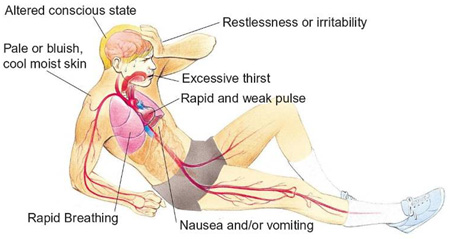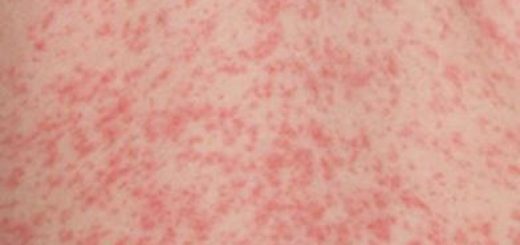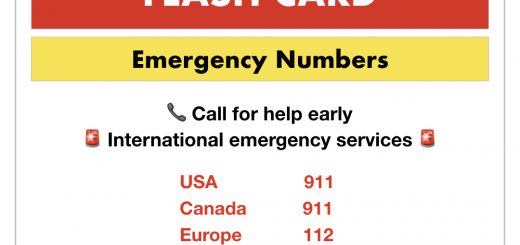What is Shock in First Aid?
Shock in a medical sense is quite different from emotional or psychological shock. It means that the body’s circulation has failed, and insufficient blood supply is reaching vital organs.
Shock, if progressive, can be life-threatening – eventually, the person will become unconscious and the heart and breathing will stop. Shock may be due to any condition that interferes with the normal output of the heart.
Blood loss after an injury is a common cause of shock in a first aid situation. Shock may also be due to the loss of other body fluids in conditions such as burns or protracted vomiting. These causes of shock are known as hypovolemic shock.
Other causes of shock include serious injury, heart attack and severe infections. Anaphylactic shock may occur when someone has a very severe allergic reaction.
Signs and Symptoms of Shock

- pale, cold, clammy skin
- weakness and nausea
- dizziness and feeling faint
- rapid, shallow breathing
- rapid, weak pulse
- grey or blue skin and lips
- gasping for air
- reduced level of consciousness
If you suspect shock, call for emergency medical help immediately. Find and treat the cause of shock, for example, severe bleeding or burns. Keep the patient laying flat until medical help arrives.
Don’t give the patient anything to eat or drink as this may cause vomiting. Monitor vital signs until further medical help arrives.





